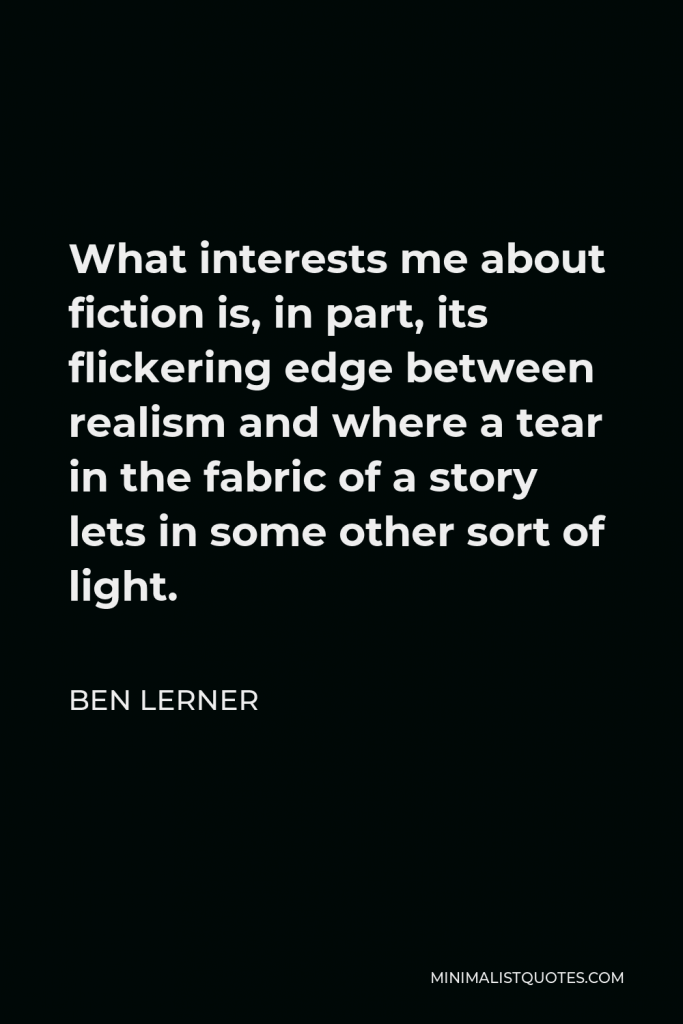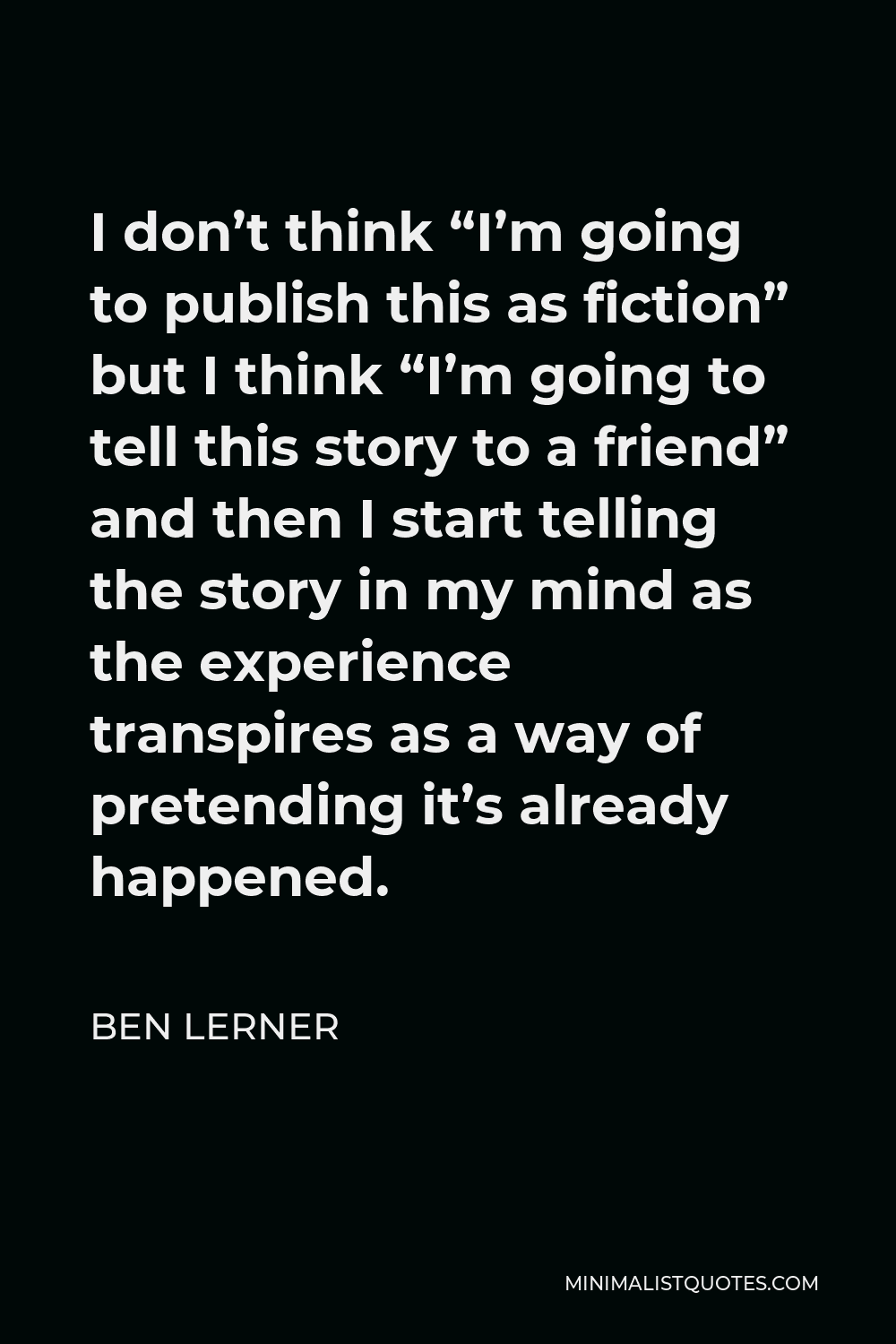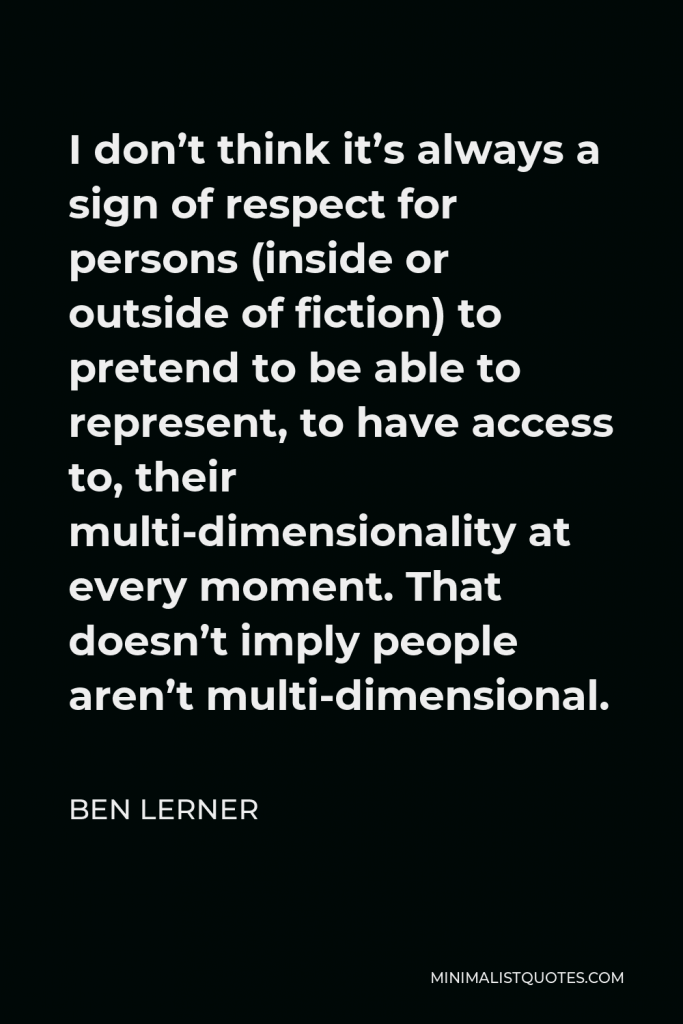Are there are fireflies on the West Coast? I never saw any when I lived in California.
BEN LERNERMaybe now if you’re not an exhibitionist you’re private. Or maybe it’s just that for a lot of people – sometimes in interesting ways, sometimes in stupid ways – there’s no division between the art object and what surrounds it.
More Ben Lerner Quotes
-






-







What interests me about fiction is, in part, its flickering edge between realism and where a tear in the fabric of a story lets in some other sort of light.
BEN LERNER -







Most of us start from that position of irony now and what I wanted to do – really felt like I had to do if I was going to write another novel – was move towards something like sincerity.
BEN LERNER -






The story and the poem are obviously changed by being placed in the novel, so in a sense they’re no longer the works that preceded the novel.
BEN LERNER -






Shaving is a way to start the workday by ritually not cutting your throat when you’ve the chance.
BEN LERNER -







I’m trying to be somebody on whom the experience is lost by supplanting it with its telling. I definitely do that in medical contexts, even in trivial ones.
BEN LERNER -






I’m defending fiction as a human capacity more than as a popular or dying literary genre.
BEN LERNER -







Maggie Nelson cuts through our culture’s prefabricated structures of thought and feeling with an intelligence whose ferocity is ultimately in the service of love. No piety is safe, no orthodoxy, no easy irony. The scare quotes burn off like fog.
BEN LERNER -






I came to realize that far more important to me than any plot or conventional sense was the sheer directionality I felt while reading prose, the texture of time as it passed, life’s white machine.
BEN LERNER -






I like to think – knowing that it’s an enabling fiction – of those moments as fragments from a world to come, a world where price isn’t the only measure of value.
BEN LERNER -






I don’t think “I’m going to publish this as fiction” but I think “I’m going to tell this story to a friend” and then I start telling the story in my mind as the experience transpires as a way of pretending it’s already happened.
BEN LERNER -






Few real people appear in my two novels, actually. “Ari” appears on the edge of this book a couple of times – but on the edge, she’s never in it, even if she’s a determining force from the outside. Everybody in the first book was basically made up, if never from scratch.
BEN LERNER -







I don’t think it’s always a sign of respect for persons (inside or outside of fiction) to pretend to be able to represent, to have access to, their multi-dimensionality at every moment. That doesn’t imply people aren’t multi-dimensional.
BEN LERNER -






The transpersonal is more awe-inspiring, more exciting than the thing we confuse it for.
BEN LERNER -






Anyway I read more contemporary poetry than contemporary fiction so my mind goes first to a kind of crass “conceptualism” that repeats vanguard gestures of the past minus the politics and historical context.
BEN LERNER -






I think the anti-intellectualism of a lot of contemporary fiction is a kind of despairing of literature’s ability to be anything more than perfectly bound blog posts or transcribed sitcoms.
BEN LERNER







